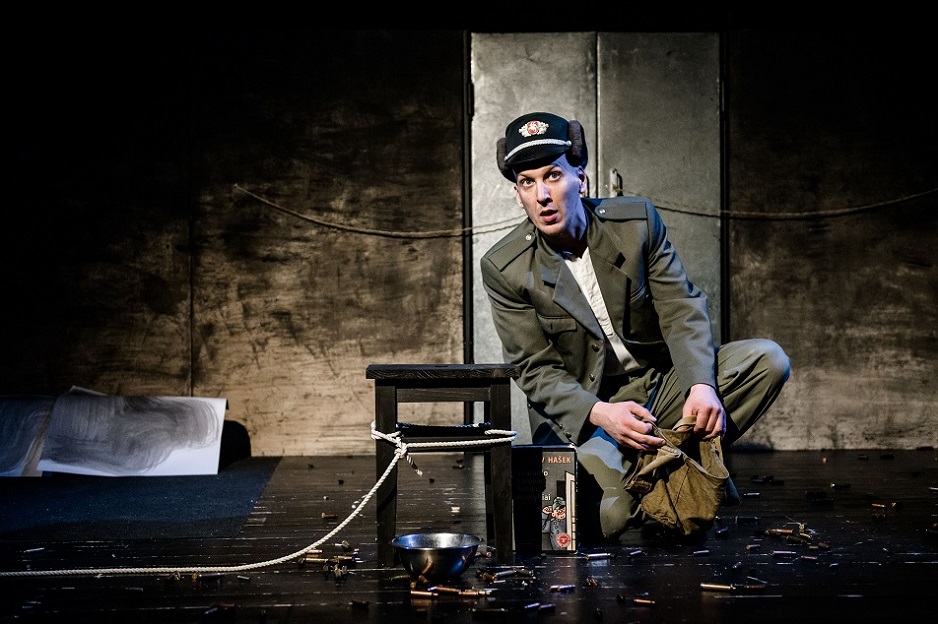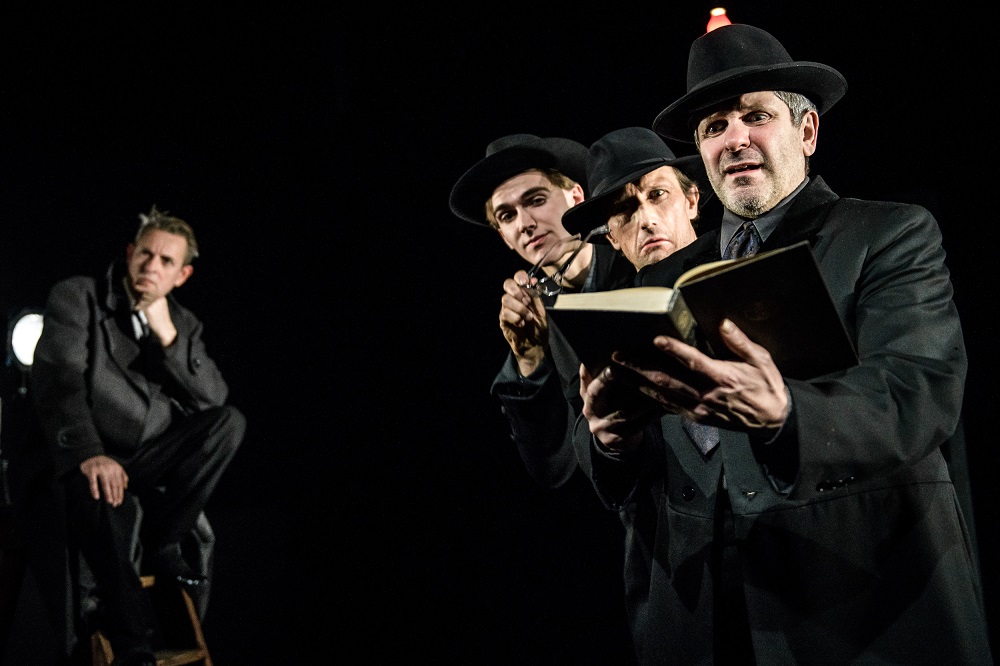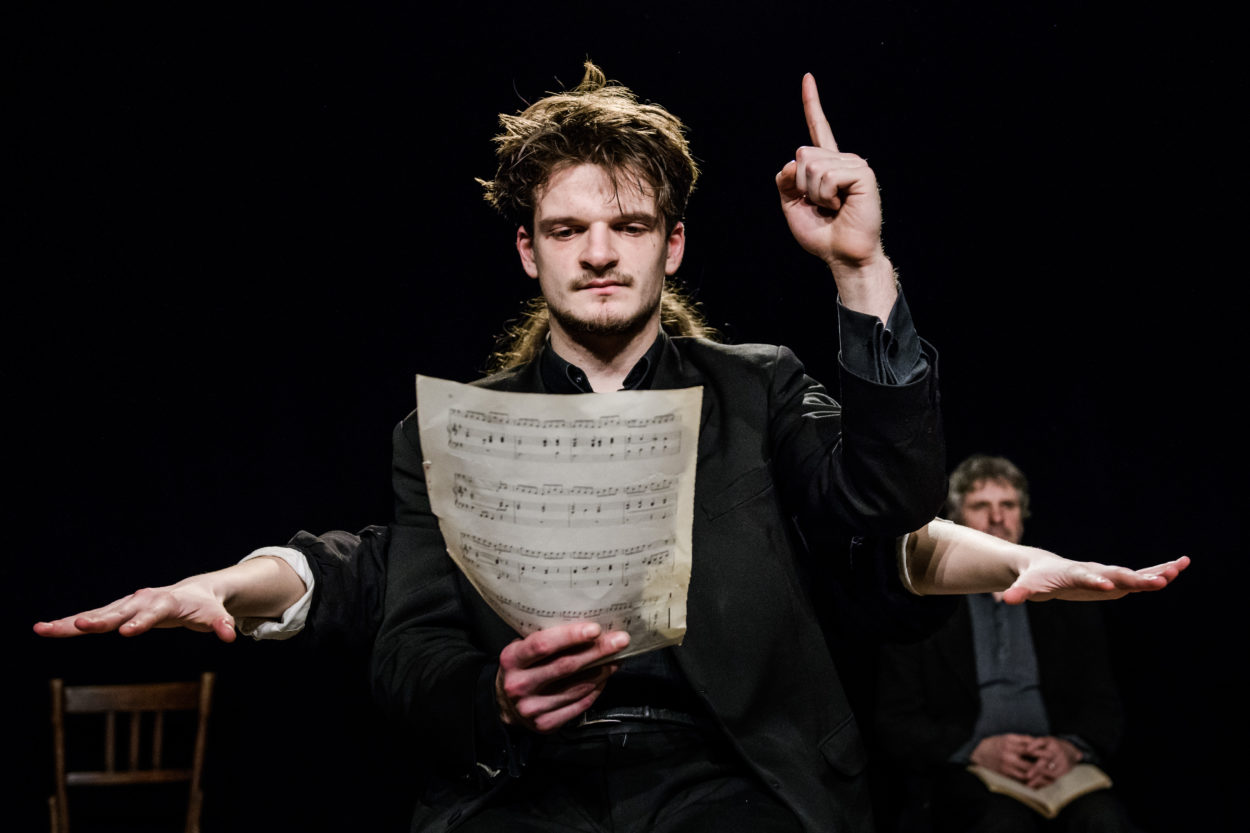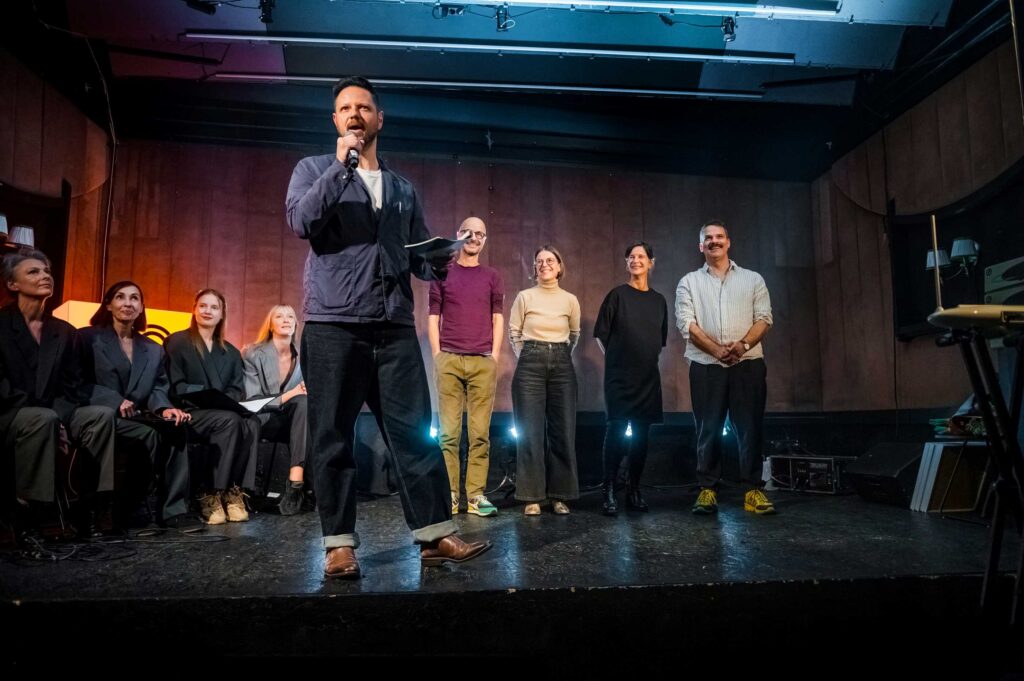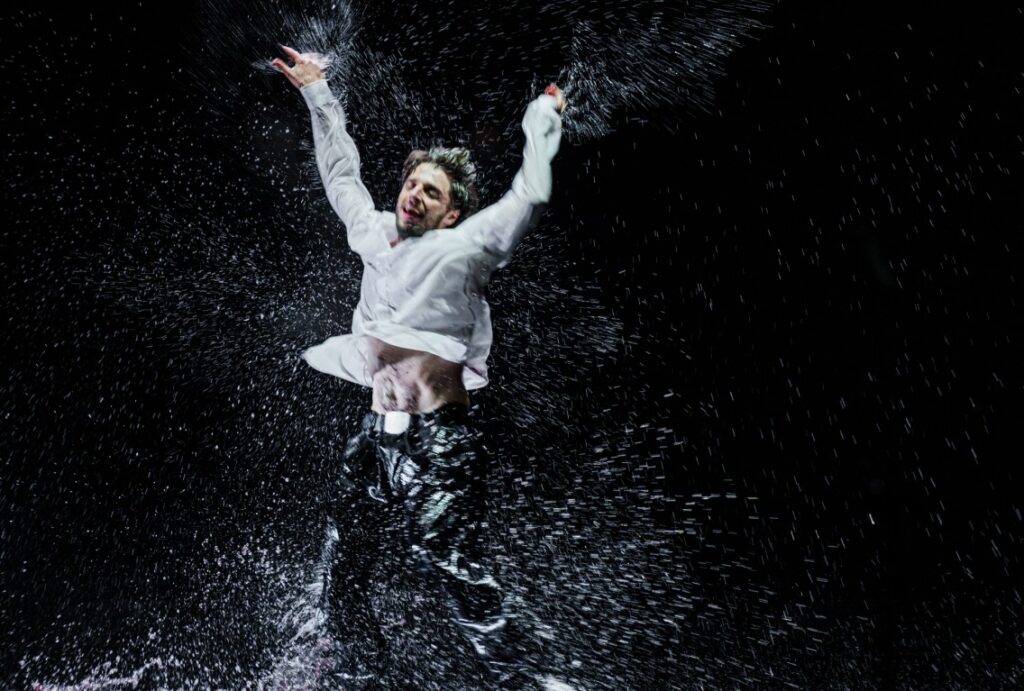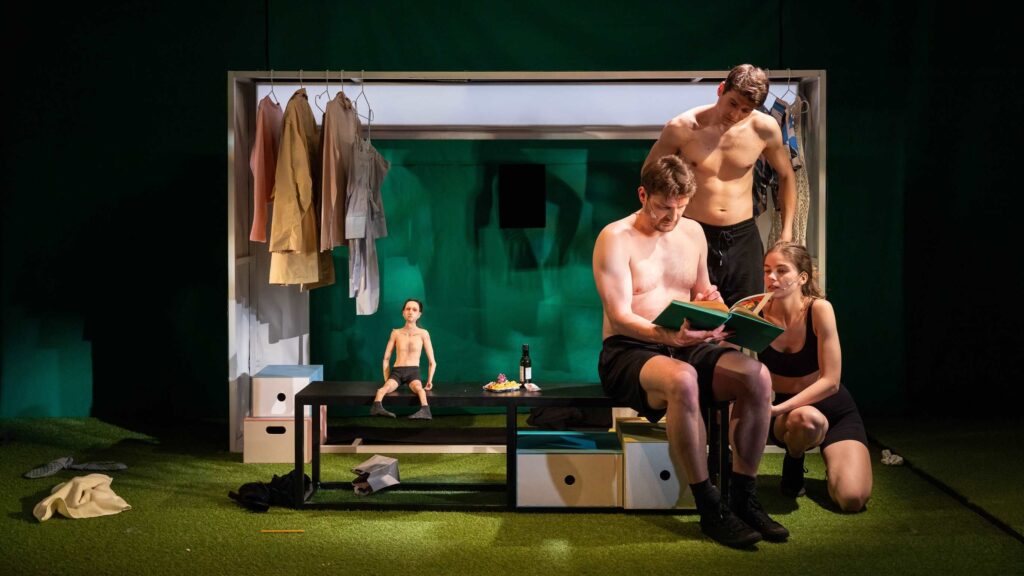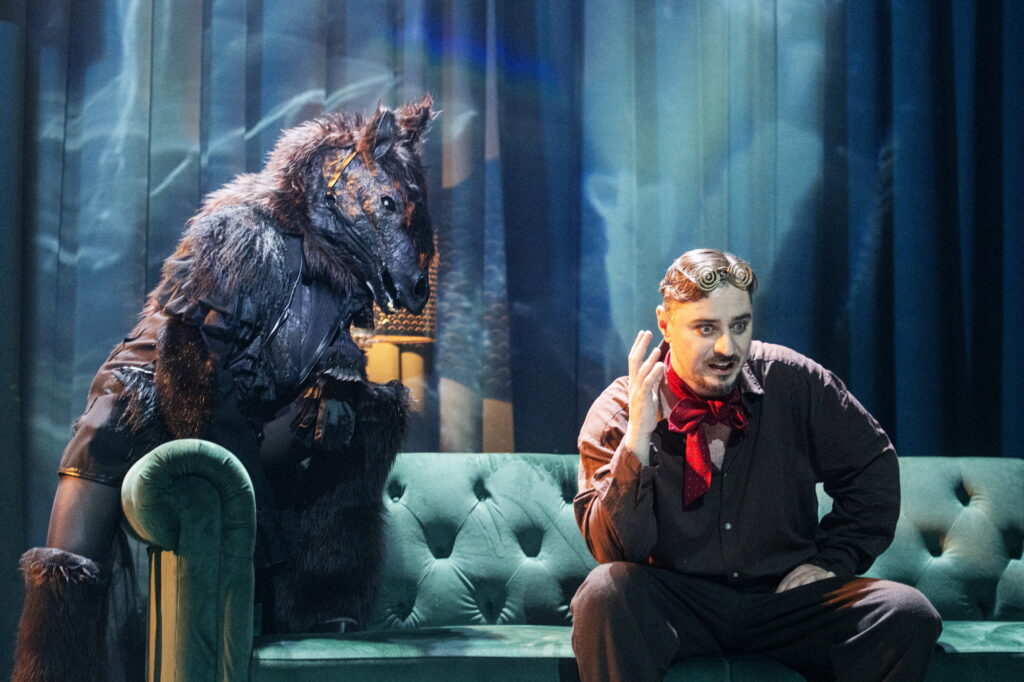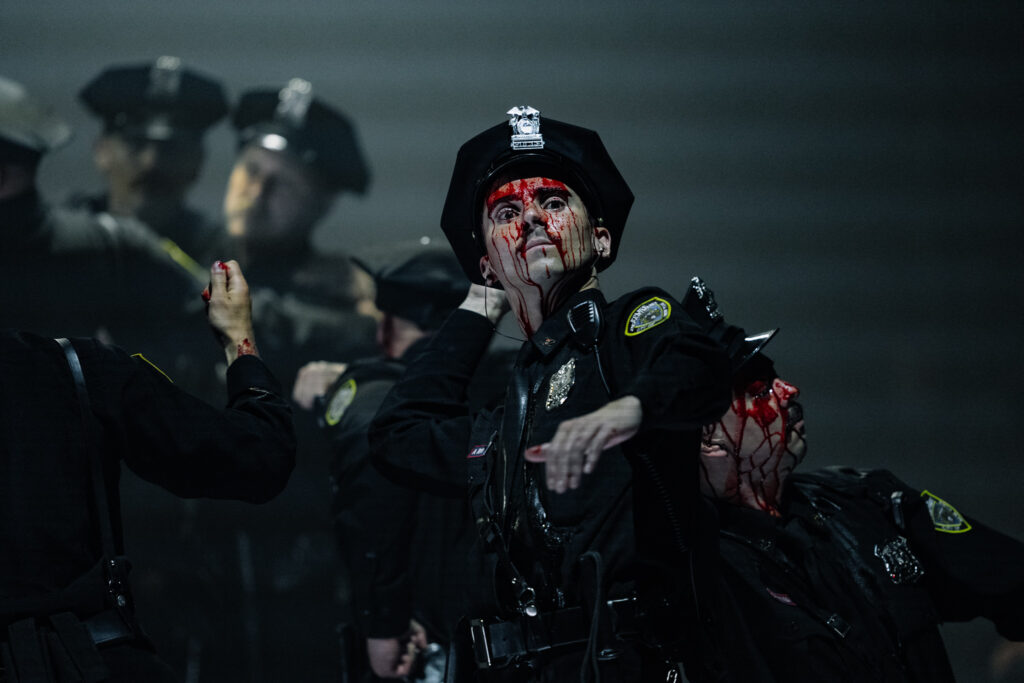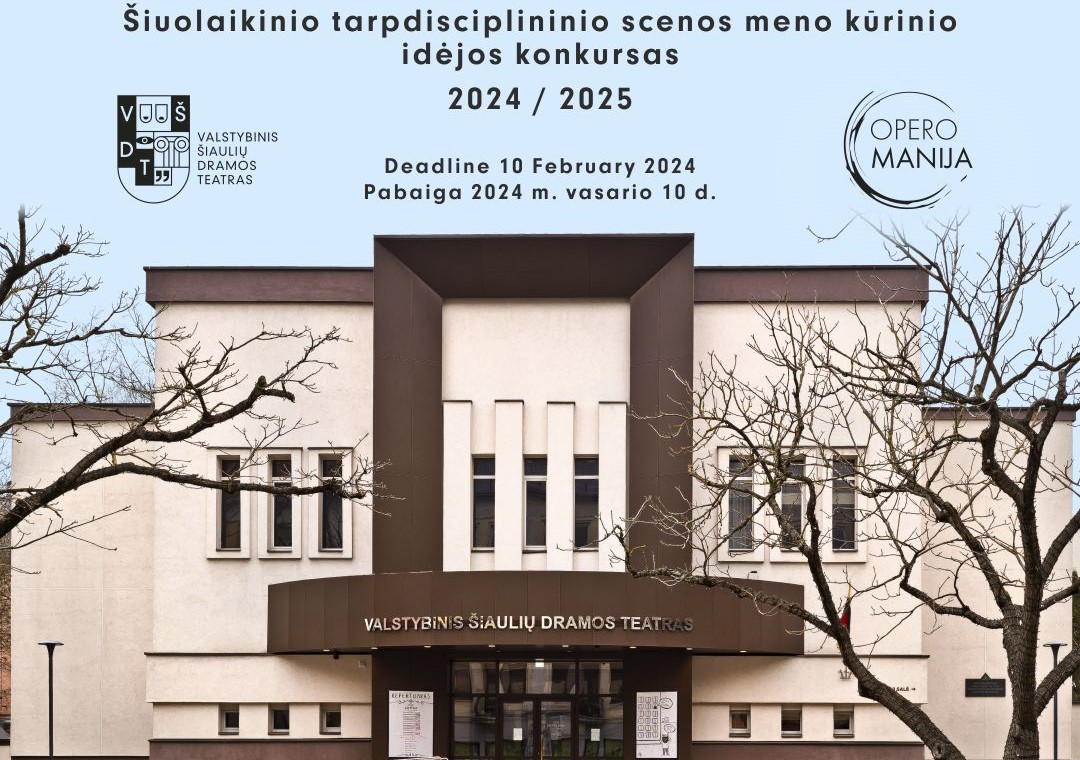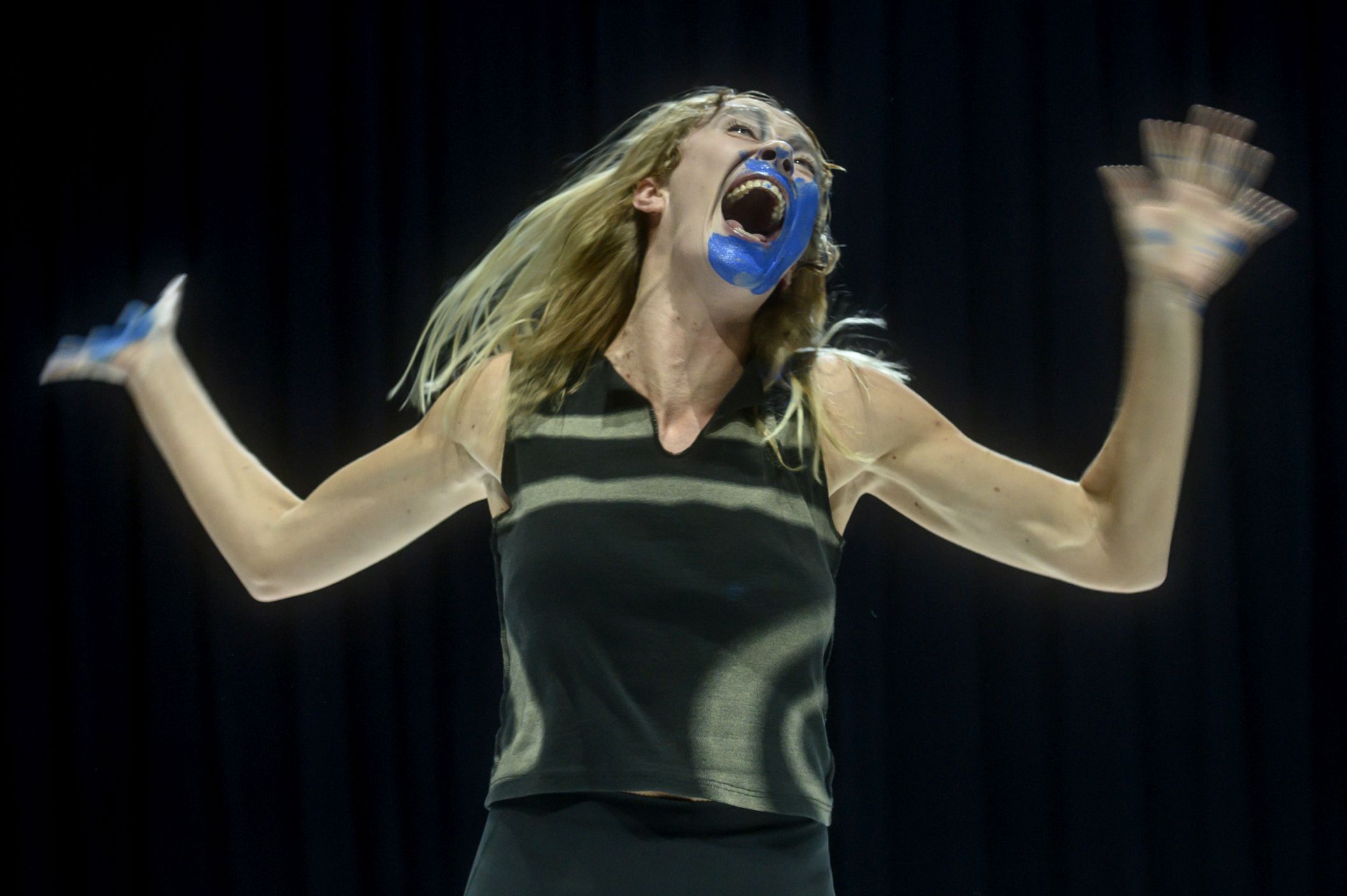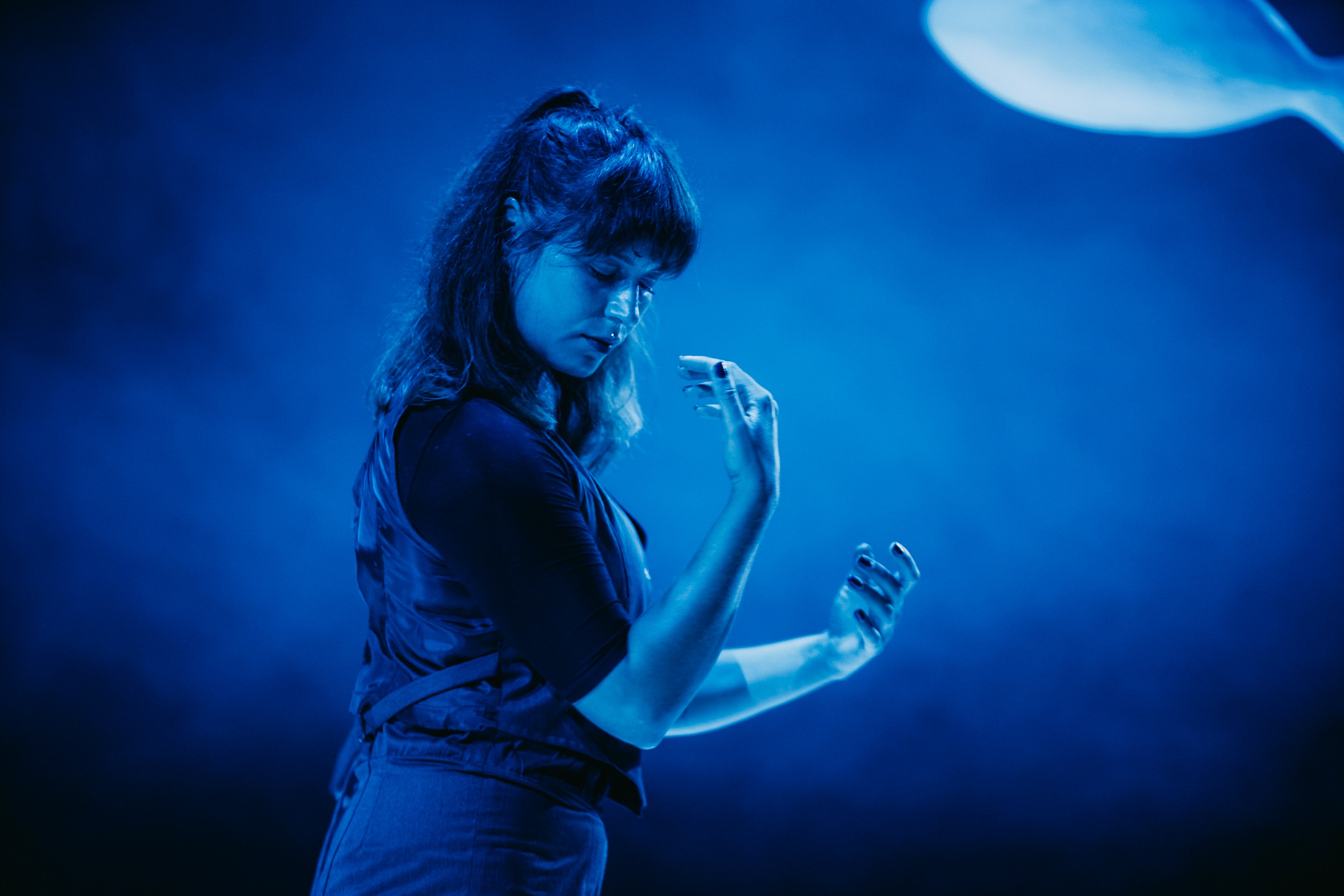Adomas Juška graduated in 2019, yet his works have already attracted significant attention of the reviewers, way more than the plays by other young generation directors. When he was a third year student, Adomas debuted at the Youth Theatre with a play Švejk after the novel by Jaroslaw Hašek. Soon after, he presented two other pieces based on prose works. Director's debut at a professional theatre was reviewed only once, whereas Adomas' later works - Fictions after the texts by Jorge Luis Borges and Brother of Sleep after the novel by Robert Schneider have attracted much more attention.
While analysing the context provided to the works by Juška by critical reviews and press releases presenting the plays, one immediately notices that many professionals of the Lithuanian theatre perceive the young director as a successor or commentator of the style and ideas of Eimuntas Nekrošius, who was the leader of Adomas' study course at the Academy. In his plays, Juška proposes symbols and metaphors, preferring action over words, since an action embodies the modes and metaphors contained in the novel, whereas the set design created by director himself abounds with old, dusty objects. All of the above, combined with personal reminiscences, have encouraged rejoicing of professionals who have discovered traces of Nekrošius' heritage in Juška's works.
Philologist Zigmas Pakštaitis (Literatūra ir menas) notes that the information of Juška being the pupil of Nekrošius contained in the posters for Fictions results in “certain expectations for adoptive expression”. Further on, he highlights the connections by way of personal reflections: “I was always interested in Nekrošius' forked tongue: a vocabulary of corporeal symbols telling a story different from the narration itself, unfolding subtle nuances of myth, symbol, religion or psychology. <...> Adomas applies similar strategy and this is delightful”. Theatre critic Dovilė Zavedskaitė (menufaktura.lt) also sees such continuity in her analysis of the performance: “Aesthetics of direction of Adomas Juška transfers the attention towards an emotion trapped in time, rather than the expectation of movement <...> Juška's theatre greatly reminds of the expression of his teacher, late Eimuntas Nekrošius, which is a good reason for joy today, since we feel the presence of a meaningful continuation”. Theatrologist Ramunė Balevičiūtė (menufaktura.lt) emphasises the young director's autonomy of creation, also acknowledging that while watching Brother of Sleep it is hard to “switch off” the mechanism creating reminiscences, which continually invokes imagery from Nekrošius' plays in one's memory” and claims that Juška's performances contain a dialogue with his teacher. Meanwhile, in the analyses of Fictions (vilniausgalerija.lt) and Brother of Sleep (7 meno dienos) theatrologist Daiva Šabasevičienė guesses that through his performances Juška consciously communicates with his teacher: “As if the performance were dedicated to the late Eimuntas Nekrošius”; “I think it is no coincidence to see the young director openly conversing with his first teacher in theatre directing, the late Eimuntas Nekrošius”.
However, along correlations with the school of the master, one desires to discover the individuality of the director, something that differentiates him both from the works of the teacher and within the context of young colleagues. In an interview before the premiere of Fictions, Juška himself told that in his creative work he relies on associations, search for magic realism and also hinted of conflicts between certain form and the material in question: “Personally, I prefer to take some short story, work on it and observe how it resists the stage: something is transferred to the stage, something is not, something serves as stimulus for a new thought“.
In her review of Juška's debut as theatre director (15min.lt) theatrologist Kristina Steiblytė noted that the visual elements of Švejk (set design, actions, etc) serve as means for theme development: “The absurd of non-quite-functional democracy and especially that of war is mostly disclosed through imagery: strange shooting practice, posters and use thereof, a visually unrecognisable creature with red medical cross on its side (appearing as a kind of vision or drunken hallucination), or Švejk's epaulettes in the finale”. Delving deeper into investigation of the themes of the play, the critic mentions presentiment of war and the sense of insecurity: “following an attempt to detonate everything, the dream-vision of soldier Švejk tells what is of utmost significance in the play: no matter how quiet or comfortable our life is, we are not secure. <...> Švejk shows not only the presentiment of war, but also the fear of what threatens an ordinary man, a private, doomed to lose everything due to somebody else's failure in the games of power”. Acknowledging the relevance of such themes, the critic also highlights the problematic and comical expression, which was so important to Hašek: “the creative team added very little of own satire, irony and laughter to the play”.
In his second play Fictions, Juška took a more directed approach towards formation of own style. The piece caught the attention of many Lithuanian theatre critics, which, beyond doubt, was influenced by growing experience of the director and the trust expressed by the manager of the Youth theatre, as well as the choice of texts by Jorge Louis Borges for dramatisation and an exceptionally strong cast of actors. “Although Adomas is only a fourth year student, there is nothing student - like in the performance”, - notes theatre critic Dovilė Zavedskaitė, who also says that an important trait of director's aesthetics lies in “bold, absurd space time, based on imagination stimulation and motives of stage play, rather than psychological ones”. Pakštaitis emphasises the director's ability that allows “theatre to be theatre, without trying to turn it into cinema, performance, routine, documentary or coaching seminars”. Theatricality is emphasised by Šabasevičienė as well; she claims that “Fictions is construed in a way that a literary narrative transforms into a theatrical discourse when the imagery and symbols start affecting the consciousness”. Speaking of possible directing errors (“The seams of the performance often <...> come to the surface, although at times it appears that the director is intentionally showing the roughness of the fabric”) theatrologist declares Fictions being a deeply artistic performance.
Contemplating on Juška's Brother of Sleep, his third work staged at the Youth theatre, theatre critic Ramunė Balevičiūtė distinguished two characteristic traits of the director: passion to “create in unique style, achieve independent thinking on stage”, along with his inclination to use literature as a tool to explore the very nature of theatre (as if expanding on the earlier observations by Pakštaitis and Šabasevičienė). Focus on theatricality is also noted by critic Aušra Kaminskaitė (15min.lt): “the performance appeals to the imagination of the audience, it is a very theatrical piece, art for arts sake, allowing the viewers to experience aesthetic satisfaction”. Juška's creative expression is strongly supported by Šabasevičienė, who notices the director's thoroughness and his ability to approach the material from variety of angles, legitimising his theatricality as a mark of a talented professional: “Juška is already an established artist <...>. He merely creates talented works, varied as they are, but what is of utmost significance - he speaks the theatrical language and he speaks of something that can be experienced in drama theatre only. <...> Theatre, as an impossible aspiration has materialised itself in Juška's new piece - a harmony of freed imagination and content has taken place”.
Along the theatrical direction appealing to viewer's imagination, most of the critics that have analysed Juška's works note his special relationship with the actors. Kaminskaitė, an author of review of Brother of Sleep assumes a stricter position: “Juška creates with a heavy director's hand, precisely specifying the actions of most actors <...> and often cutting down all improvisations”. Other critics display an entirely different approach to the cooperation between the director and the actors of the performance. Balevičiūtė states that the actors in Brother of Sleep, both students and seasoned masters of the stage act as true conspirators of the director. Whereas, Zavedskaitė describes her fascinating experiences while watching Fictions, which allowed to discover a new expression of actor Aleksas Kazanavičius, naming it as a remarkable achievement of the director.
Another trait of the director frequently noted and diversely valued by the critics is associated with the style of bygone theatre. Claiming that Juška is a director of “the theatre all have been longing for, rather than the theatre that is expected” Kaminskaitė questions “how adequate it is to hand the interpretation of performance story and directing decisions to the audience, at the same time ignoring the principles of reception of a present-day human”. Pakštaitis refers to the director's expression as retro futurism, declaring himself a young viewer, and notes that “one cannot escape the feeling that this is what theatre must have looked like some thirty years ago. Whereas Balevičiūtė is intrigued: “the “old-fashionedness” of the young director is so passionate and so categorical it is deemed to invoke sympathy and curiosity - what happens next?...”
Foreign audiences interested in Lithuanian theatre will definitely have a chance to see Juška's works in future showcases and theatre festivals. It is likely that the association with the works of Juška's teacher Nekrošius will be easy to spot, however, noting the style of an old, classical, theatrical theatre proposed by the young director, one would like to identify him as a creator who is true to himself, rather than his teacher. It may sound as a cliché, but that is the way it is - an “old-fashioned” theatrical expression today is becoming a trademark among young, experimenting directors. Retro futurism.
APAC info


